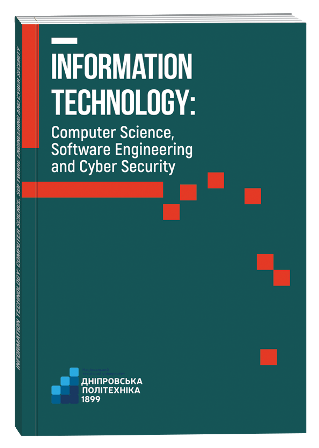IMPORTANT ISSUES OF DATA PROCESSING AND PROTECTION IN DISTRIBUTED SYSTEMS
DOI:
https://doi.org/10.32782/IT/2024-4-9Keywords:
big data, distributed networks, cybersecurity, information protection, cryptography, homomorphic encryption, anomaly detection, machine learning, blockchain, risk management, privacy, data integrity, cloud technologies.Abstract
The purpose of this article is to explore the critical aspects of big data processing in distributed networks as a contemporary challenge in ensuring cybersecurity. Special attention is given to issues of confidentiality, integrity, and availability of data in multi-user environments with high interaction complexity. The methodology of the study involves a comprehensive approach, including the analysis of threats and vulnerabilities specific to distributed architectures such as cloud technologies, peer-to-peer networks, and decentralized infrastructures. Key issues such as asynchronous data access, limited computational resources, operation synchronization complexity, and risks of data interception during transmission are examined. The study evaluates modern cryptographic approaches, including homomorphic encryption, distributed key management mechanisms, and privacy-preserving protocols. Additionally, the application of machine learning and deep learning algorithms is explored for anomaly detection in system behavioral models in real-time. The scientific novelty of the research lies in the systematization of threats and vulnerabilities inherent to distributed data processing systems and the development of effective approaches to neutralize them. For the first time, a comprehensive approach to the use of blockchain technologies is proposed as a means of ensuring transparent auditing of events and tracking transactions in distributed environments. The conclusions provide practical recommendations for integrating modern cryptographic methods, distributed key management mechanisms, blockchain technologies, and machine learning algorithms to build resilient cybersecurity systems. The findings are of practical significance for ensuring the protection of big data in distributed networks and improving the effectiveness of responses to potential threats.
References
M. S. Rahman and H. Reza, «A Systematic Review Towards Big Data Analytics in Social Media,» in Big Data Mining and Analytics, vol. 5, no. 3, pp. 228–244, September 2022, doi: 10.26599/BDMA.2022.9020009.
D. Syed, A. Zainab, A. Ghrayeb, S. S. Refaat, H. Abu-Rub and O. Bouhali, «Smart Grid Big Data Analytics: Survey of Technologies, Techniques, and Applications,» in IEEE Access, vol. 9, pp. 59564–59585, 2021, doi: 10.1109/ACCESS.2020.3041178.
X. Sun, Y. He, D. Wu and J. Z. Huang, «Survey of Distributed Computing Frameworks for Supporting Big Data Analysis,» in Big Data Mining and Analytics, vol. 6, no. 2, pp. 154–169, June 2023, doi: 10.26599/BDMA.2022.9020014.
J. Liao and J. Lin, «A Distributed Deep Reinforcement Learning Approach for Reactive Power Optimization of Distribution Networks», в IEEE Access, vol. 12, р. 113898–113909, 2024, doi: 10.1109/ACCESS.2024.3445143.
D. Park, S. Kang and C. Joo, «A learning-based distributed algorithm for scheduling in multi-hop wireless networks,» Journal of Communications and Networks, vol. 24, no. 1, pp. 99–110, Feb. 2022, doi: 10.23919/JCN.2021.000030.
M. W. S. Atman and A. Gusrialdi, «Finite-Time Distributed Algorithms for Verifying and Ensuring Strong Connectivity of Directed Networks,» in IEEE Transactions on Network Science and Engineering, vol. 9, no. 6, pp. 4379–4392, 1 Nov. -Dec. 2022, doi: 10.1109/TNSE.2022.3200466.
T. Lenard, A. Collen, M. Benyahya, N. A. Nijdam and B. Genge, «Exploring Trust Modeling and Management Techniques in the Context of Distributed Wireless Networks: A Literature Review,» in IEEE Access, vol. 11, pp. 106803–106832, 2023, doi: 10.1109/ACCESS.2023.3320945.







